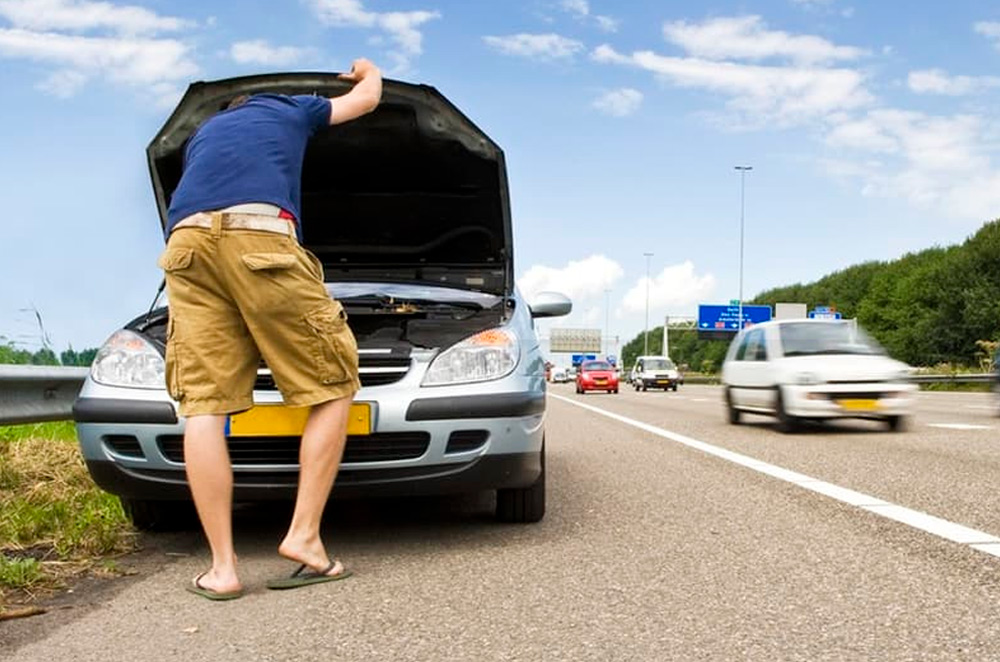
In automobiles, stalling your car means that your engine has died. No, we’re not talking about stalling due to lack of accelerator input when using the clutch, we’re talking about a mechanical or electrical failure of some sort. And a dead engine means you’re going to be late to work or any commitments you have for the day, especially if you can’t get the car up and running right away. Naturally, this is a very scary experience for any driver, and when you dashboard warning lights go on, your steering feels heavy, and the brakes aren’t as strong, it can be a sensory overload.
In this article, we’ll be talking about what to do when your engine decides to quit on you. I guess this goes without saying, but an engine suddenly shutting off can be the result of a myriad of reasons, from mechanical to fuel issues. Heck, even a bad battery with a bad connection can cause your engine to conk out. The best way to prevent this from ever happening is to get your car regularly serviced and checked – prevention is cheaper than the cure. In any case, it pays to be prepared in case one does have to deal with a stalled vehicle.
Safety First

Whether you’re driving down the road or stopped at a stoplight, if your car does end up stalling, remember that safety is always your priority. If your car stalls while moving, indicate to the side of the road and make your way there slowly and carefully, using the remaining momentum to keep rolling. Steer steadily and depress the brake pedal gradually until you come to a stop. Once you’ve safely stopped, switch on your hazard lights. If you stall while in traffic and you can’t move to the side of the road, immediately switch on your hazard lights and stay in the car until it is safe to go down. Your personal safety should always take priority over your vehicle at all times.
Power and Fuel

According to our trusty expert contact, Angelo Juni, a certified engine mechanic at FJ Keyser Engine Rebuilder, getting down to the problem is usually a process of elimination. The basics can be easily done on the side of the road. First, the cause of the stall can be as simple as an empty fuel tank. With modern cars, sensors do all the talking to the driver, giving them readouts and displays for all sorts of information. A bad fuel level sensor can lead to the driver never even knowing that he or she was running on fumes. Second, it could be a bad battery terminal, lead, or the battery itself. A quick flick of the key into the ignition position (where all the warning lights show up before starting the car) will show that the engine is getting power. Next is to try and turn the car on by turning the key or pressing the start-stop button. If it’s trying to start and all you hear is a slow or slowing cranking sound, tightening the loose terminal or replacing the battery should do the trick. If none of these two basic steps work, which is checking fuel and power, then maybe things are more serious.
Too hot to handle?

Overheating could also be a reason why your engine has decided to shut off. Your car would have warned you with a high temperature warning or indicator before shutting off, and the best thing to do now is to wait for the engine to cool down before checking to see if your coolant level is too low or if there is any fluid in there at all. You may have a leak in your radiator or have bad hoses that need replacing due to age or cracking. If you have water on hand, it’s best to top off the radiator when it’s safe to do so, and this easy fix can get you going for a short distance; hopefully enough to get to a mechanic or service station.
Seek an expert’s touch

If none of the above help get you back on the road or to your nearest gas station, it’s time to call a tow truck to get your car to a certified mechanic. Always save emergency numbers and check if your car has a tow service that you can avail of depending on the manufacturer or insurance policy you have. Let’s be honest, there’s only so much we can do on our own before we finally need to get an expert to check things out. At this point, you’re looking at things like possible problems with your spark plugs, ignition system, fuel system, or even oil. Oh, and If you’re timing belt is a goner, then you’re looking at some major work to be done. All of these things need proper equipment and time to diagnose the problem, spare parts for your car to get it up to running condition, and a lot of patience.
Latest Features
-
An all-electric future: The Porsche Macan Electric / Featured Article
Porsche’s Macan goes all-electric; it’s a new beast with an electrified heart, yet unmistakably Porsche in performance and spirit.
-
Which Kia should I buy? / Featured Article
We’re here to help you decide which Kia vehicle is best for you, whether it’s a sedan, crossover, or minivan.
-
Why Lynk & Co is a good option for luxury car buyers / Featured Article
Lynk & Co offers premium value for those exploring the luxury market.
Popular Articles
-
Electric Vehicles in the Philippines for under P1 million
Jerome Tresvalles · Aug 19, 2025
-
Top 3 Cars For Every Lifestyle—What Cars Are Right For You? | Behind a Desk
Caco Tirona · Apr 24, 2024
-
5 Tips to Maximize Fuel Efficiency
Jerome Tresvalles · Sep 09, 2024
-
Five driving habits that are draining your fuel tank
Jerome Tresvalles · Jun 24, 2025
-
Can engine braking harm your engine?
Jerome Tresvalles · Sep 11, 2025
-
Do electric cars even need maintenance?
Jerome Tresvalles · Oct 23, 2024
-
Best vehicles for an active outdoor lifestyle
Shaynah Miranda · Jul 25, 2024
-
How to drive different types of vehicle transmissions
May 23, 2024
-
5 easy ways to keep your car interior clean
Allysa Mae Zulueta · Nov 15, 2021
-
How to survive Metro Manila traffic
Earl Lee · Aug 16, 2022



